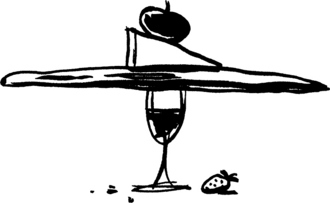Engaging. Enthusiastic paeans to olive oil, truffles, and bouillabaisse, washed down with a good local vintage or a glass of pastis.
The glories of the French countryside come alive.
Stylish, witty, delightfully readable.
[Mayle] virtually establishes a lip-licking new literary genrecall it dinnerotica. He is becoming an American Evelyn Waugh.
As charming and witty as ever. Mayle enticingly recounts his peregrinations around the truffle markets and his searches for the perfect corkscrew or melon, but its his ability to capture the subtle cultural peculiarities that distinguishes his writing.
[Mayle has] a journalists eye for detail and a novelists sense of character.
Peter Mayle
Encore Provence
Peter Mayle is the author of fifteen books, nine of them novels, including the beloved bestseller A Year in Provence. A recipient of the Lgion dHonneur from the French government for his cultural contributions, he lived in Provence with his wife, Jennie, for more than twenty-five years. Mayle died in 2018.
ALSO BY PETER MAYLE
Chasing Czanne
Anything Considered
A Dogs Life
Hotel Pastis
Toujours Provence
A Year in Provence
 FIRST VINTAGE DEPARTURES EDITION, MAY 2000
FIRST VINTAGE DEPARTURES EDITION, MAY 2000
Copyright 1999 by Escargot Productions Ltd.
Illustrations copyright 1999 by Ruth Marten
All rights reserved under International and Pan-American Copyright Conventions. Published in the United States of America by Vintage Books, a division of Random House, Inc., New York, and simultaneously in Canada by Random House of Canada Limited, Toronto. Originally published in hardcover in the United States by Alfred A. Knopf, a division of Random House, Inc., in 1999.
Vintage is a registered trademark and Vintage Departures and colophon are trademarks of Random House, Inc.
The Library of Congress has cataloged the Knopf edition as follows:
Mayle, Peter
Encore Provence : new adventures in the south of France / Peter Mayle.
p. cm.
eISBN: 978-0-307-52293-1
1. Mayle, PeterHomes and hauntsFranceProvence.
2. Provence (France)Social life and customs. I. Title.
DC611.P961 M34 1999b
944.9dc21 99-62335
Author photograph Jennie Mayle
www.vintagebooks.com
Cover design by Carol Devine Carson
Cover illustration by Ruth Marten
v3.1_r1
For Jennie with love, comme toujours
Contents
Second Impressions
I think it was the sight of a man power-washing his underpants that really brought home the differences, cultural and otherwise, between the old world and the new.
It was a cold, still morning in early winter, and the pulsing thumpthump, thumpthump of a high-pressure hose echoed through the village. Getting closer to the sound, it was possible to see, over a garden wall, a laundry line totally devoted to gentlemens underwear in a stimulating assortment of colors. The garments were under attack, jerking and flapping under the force of the water jet like hanging targets in a shooting gallery. Standing some distance away, out of ricochet range, was the aggressor, in cap and muffler and ankle-high zippered carpet slippers. He had adopted the classic stance of a soldier in combat, feet spread apart, shooting from the hip, a merciless hail of droplets raking back and forth. The underpants didnt stand a chance.
Only a few days before, my wife and I and the dogs had arrived back in Provence after an absence of four years. Much of that time had been spent in America, where we were able to slip back into the comfortable familiarity of a language that was relatively freealthough not entirelyfrom the problems of being socially appropriate or sexually accurate. No longer did we have to ponder the niceties of addressing people as vous or tu, or to rush to the dictionary to check on the gender of everything from a peach to an aspirin. English was spoken, even if our ears were rusty and some of the fashionable linguistic flourishes took a little getting used to.
A friend of below-average height told us he was not considered short any more but vertically challenged; the hour, previously a plain old sixty minutes, had sprouted a top and a bottom; you were not seen leaving a room, but exiting it; the economy was regularly being impacted, as though it were a rogue wisdom tooth; great minds intuited where once they had merely guessed; hopefully, an agreeable word that never harmed a soul, was persistently abused. Important people didnt change their opinions, but underwent a significant tactical recalibration.
There were many and hideous outbreaks of legalese in everyday speech, reflecting the rise of litigation as a national spectator sport. Surplusage was one of a hundred of these horrors. I noticed also that sophisticated and influential Americansthose whose comments are sought by the mediawere not content to finish anything but preferred to reach closure, and I have a nasty feeling that it wont be long before this affectation is picked up by waiters in pretentious restaurants. I can hear it already: Have you reached closure on your salad? (This, of course, would only be after you had spent some time bending your learning curve around the menu.)
We met, for the first time, the outster, although we never saw a trace of his more fortunate relative, the inster. We were taught to give up our hopelessly old-fashioned habit of concentrating and instead try focusing. Every day seemed to bring new and exciting vocabulary options. But these minor curiosities didnt alter the fact that we were surrounded by at least some version of the mother tongue and therefore should have felt quite at home.
Somehow we didnt, although it certainly wasnt for lack of a welcome. Almost everyone we met lived up to the American reputation for friendliness and generosity. We had settled in a house outside East Hampton, on the far end of Long Island, a part of the world that, for nine months a year, is quiet and extremely beautiful. We wallowed in the convenience of America, in the efficiency and the extraordinary variety of choice, and we practiced native customs. We came to know California wines. We shopped by phone. We drove sedately. We took vitamins and occasionally remembered to worry about cholesterol. We tried to watch television. I gave up taking cigars to restaurants, but smoked them furtively in private. There was even a period when we drank eight glasses of water a day. In other words, we did our best to adapt.
And yet there was something missing. Or rather, an entire spectrum of sights and sounds and smells and sensations that we had taken for granted in Provence, from the smell of thyme in the fields to the swirl and jostle of Sunday-morning markets. Very few weeks went by without a twinge of what I can best describe as homesickness.


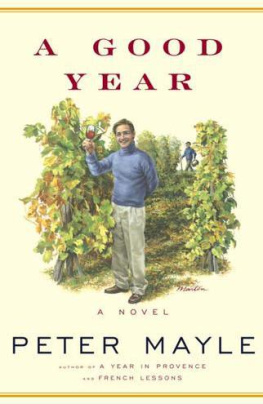
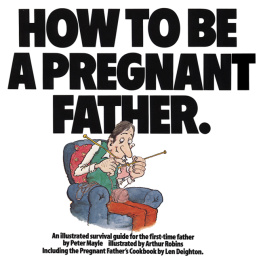
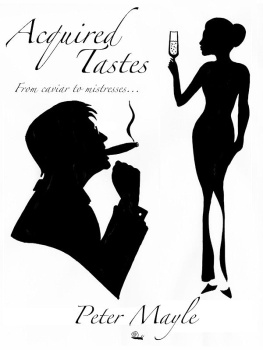


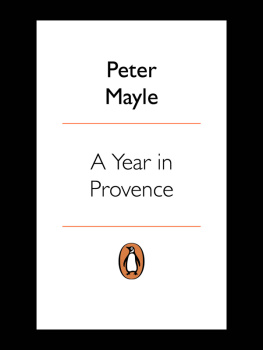

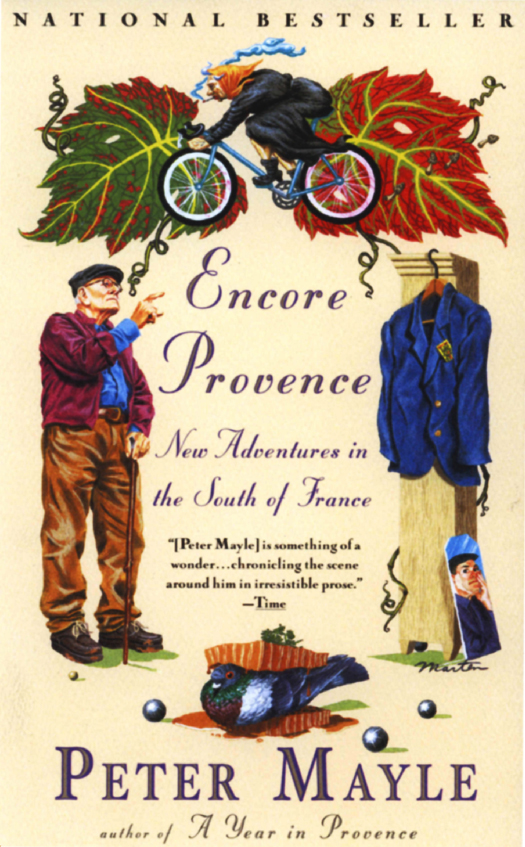
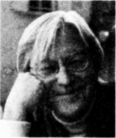
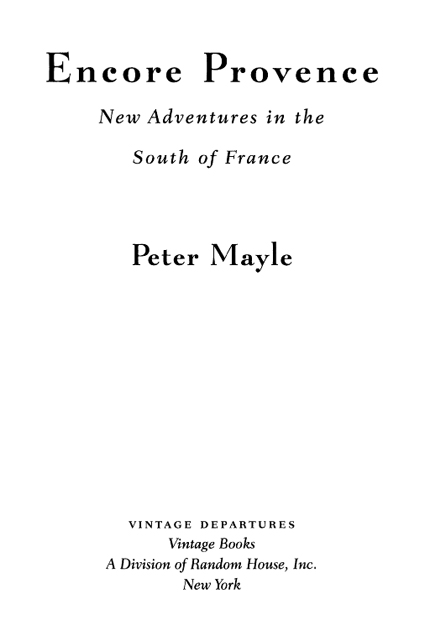
 FIRST VINTAGE DEPARTURES EDITION, MAY 2000
FIRST VINTAGE DEPARTURES EDITION, MAY 2000